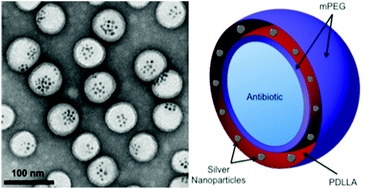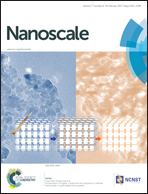Silver nanoparticle-embedded polymersome nanocarriers for the treatment of antibiotic-resistant infections
Abstract
The rapidly diminishing number of effective antibiotics that can be used to treat infectious diseases and associated complications in a physician's arsenal is having a drastic impact on human health today. This study explored the development and optimization of a polymersome nanocarrier formed from a biodegradable diblock copolymer to overcome bacterial antibiotic resistance. Here, polymersomes were synthesized containing silver nanoparticles embedded in the hydrophobic compartment, and ampicillin in the hydrophilic compartment. Results showed for the first time that these silver nanoparticle-embedded polymersomes (AgPs) inhibited the growth of Escherichia coli transformed with a gene for ampicillin resistance (bla) in a dose-dependent fashion. Free ampicillin, AgPs without ampicillin, and ampicillin polymersomes without silver nanoparticles had no effect on bacterial growth. The relationship between the silver nanoparticles and ampicillin was determined to be synergistic and produced complete growth inhibition at a silver-to-ampicillin ratio of 1 : 0.64. In this manner, this study introduces a novel nanomaterial that can effectively treat problematic, antibiotic-resistant infections in an improved capacity which should be further examined for a wide range of medical applications.


 Please wait while we load your content...
Please wait while we load your content...